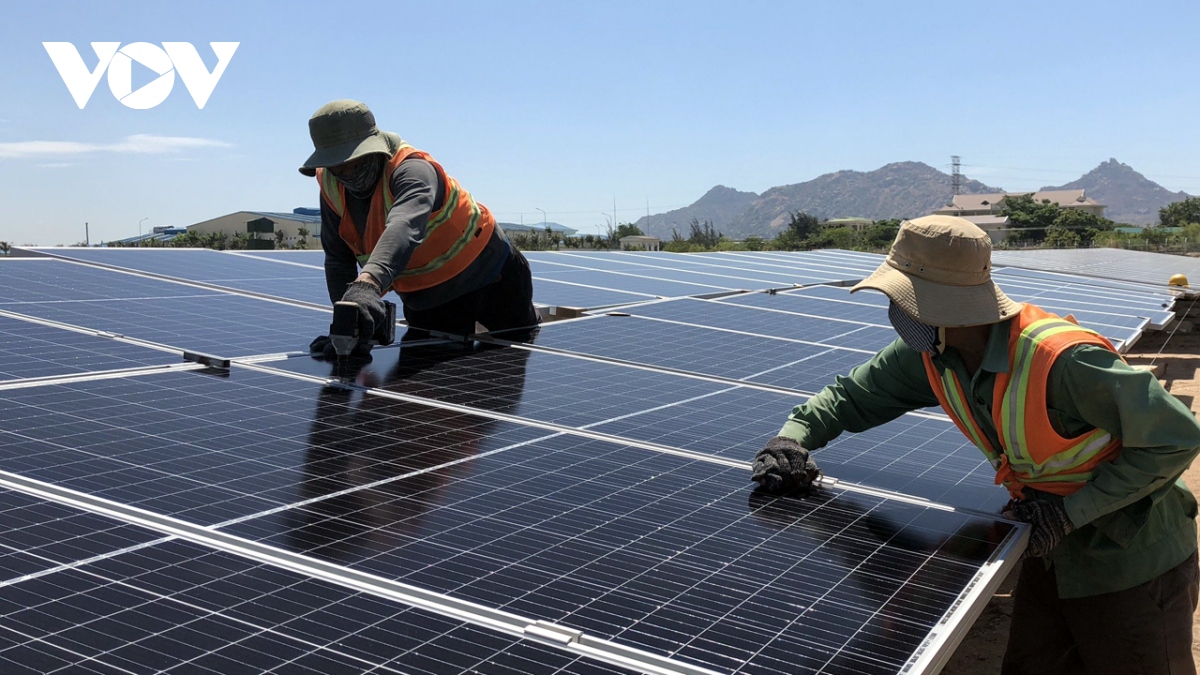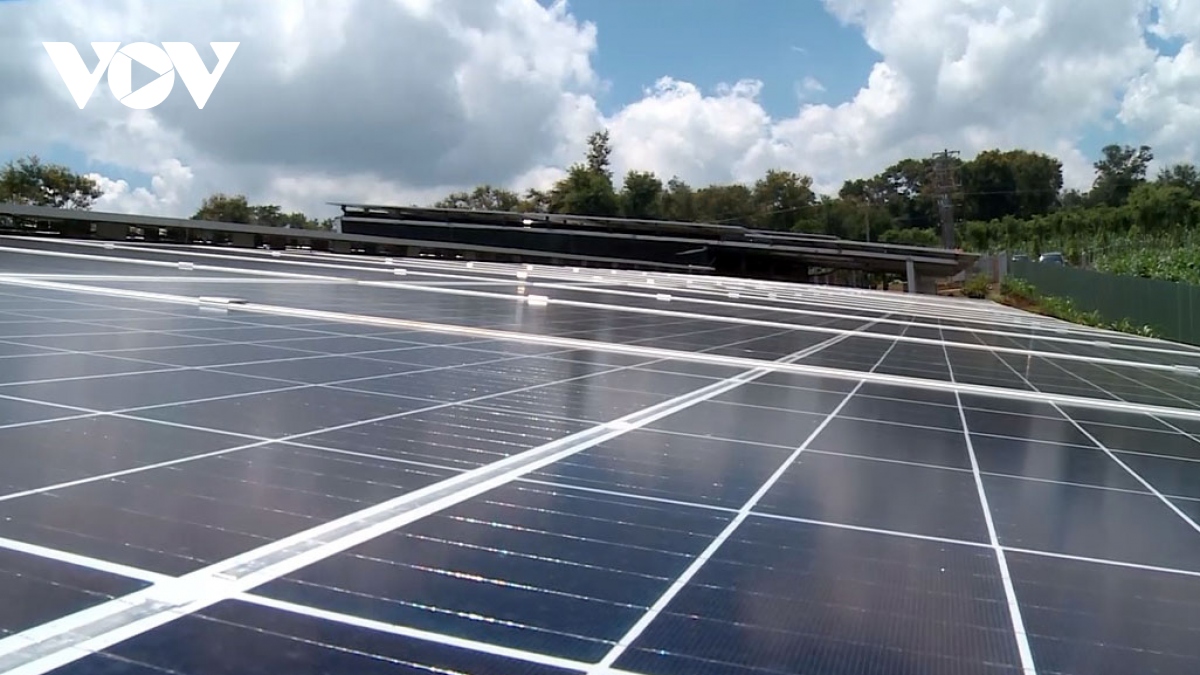The Ministry of Industry and Trade (MoIT) is soliciting feedback on a draft decree regulating the incentive mechanism for developing rooftop solar power systems installed at homes, offices, and industrial parks. One of the aspects that has sparked considerable interest among individuals and organizations interested in developing self-produced and self-consumed rooftop solar power systems (self-produced and self-used solar power systems, ĐMTMNTSTT), is the stipulation that “excess production fed into the national power grid will be recorded as zero-cost electricity and will not be compensated.”
Self-produced and self-used rooftop solar power systems encouraged for development
According to the Compilation Committee, the National Power Development Plan for the 2021 – 2030 period, with a vision to 2050 (Power Plan VIII) approved by the Prime Minister in Decision No. 500/QD-TTg dated May 15, 2023, clearly states the direction for power source development and the power source development plan: “Prioritize and encourage the development of wind power and ĐMTMNTSTT (including rooftop solar power systems of residents and construction works, solar power systems at production and business facilities, consumed on-site, not connected to or not selling electricity to the national grid).”
The purpose of encouraging the development of ĐMTMNTSTT is to enable self-use and self-sufficiency to meet their own needs while reducing purchases of electricity from the national grid, thereby reducing pressure on the power system. Due to the purpose of self-production and self-consumption, with the aim of stabilizing the quality of electricity, stabilizing electricity supply for organizations, and individuals developing ĐMTMNTSTT, the MoIT has proposed to the Government that ĐMTMNTSTT be allowed to connect to the national power grid.

Power Plan VIII prioritizes, encourages the development of wind power, ĐMTMNTSTT
This type of electricity generation is exempt from electricity operating licenses; construction projects with ĐMTMNTSTT installations do not need to make adjustments or supplements to energy land and functions as prescribed by law; the implementation procedures are simple… If rooftop solar power development is not for “self-production and self-consumption” but instead for business purposes, trading, buying, and selling, then the organization or individual must comply with the provisions of the Planning Law, Electricity Law, Investment Law, etc. Construction Law… and a number of other specialized legal regulations.
“Because the development of ĐMTMNTSTT is exempted from implementing a number of strict regulations and criteria of the law and has many policy incentives… therefore, if this type of development were to sell electricity, it would result in the national electricity plan being disrupted and difficulties controlling the power grid system, leading to safety hazards, and the exploitation of state policies. Requiring that electricity be sold is also a practical necessity in life, but people have not yet fully grasped the benefits that the MoIT has proposed with respect to reducing pressure on the national power system, increasing safe operation capacity, and providing electricity to the grid,” stated the MoIT.
Ensuring the practical scale of power sources
Over the years, although the power grid infrastructure has been invested in, upgraded, and gradually modernized, it has not been able to fully meet all power sources with different power levels. If ĐMTMNTSTT connects to the grid without any capacity limits, it will cause many difficulties for the operation of the power grid, posing a high risk of safety hazards to the national power system. Meanwhile, the solar power source is unstable, the reserve ratio of the current power source is still quite low, and there is no synchronous electricity storage solution on a national scale. Therefore, measures need to be taken to limit the proportion of grid-connected solar power to ensure stable operation of the power system.
“This draft introduces regulations for two types of rooftop solar power development: those connected to and not connected to the national power grid. The zero-cost policy applies only to surplus ĐMTMNTSTT production that is fed into the national power grid. The zero-cost price is applied because the state wants to encourage individuals and organizations to develop rooftop solar power systems to meet their own needs, thereby reducing pressure on the national power system,” the MoIT re-affirmed.

The zero-cost price policy applies only to surplus “self-produced and self-consumed” rooftop solar power production fed into the national power grid
One of the notable points in Power Plan VIII is the limit on the development of ĐMTMNTSTT power sources connected to the national power grid. This is to ensure that the actual scale of these power sources does not exceed the approved plan, thereby avoiding overloading the power distribution and transmission system. The goal is to prevent the source and power grid plan from being “disrupted”, ensuring stability and sustainability for the national power system.
In addition, Power Plan VIII also encourages the development of ĐMTMNTSTT sources, but they are not allowed to sell electricity. This sets out a clear direction, focusing on using solar power for self-supplying energy to households and businesses, promoting energy savings, and reducing the amount of electricity consumed from the national grid.












